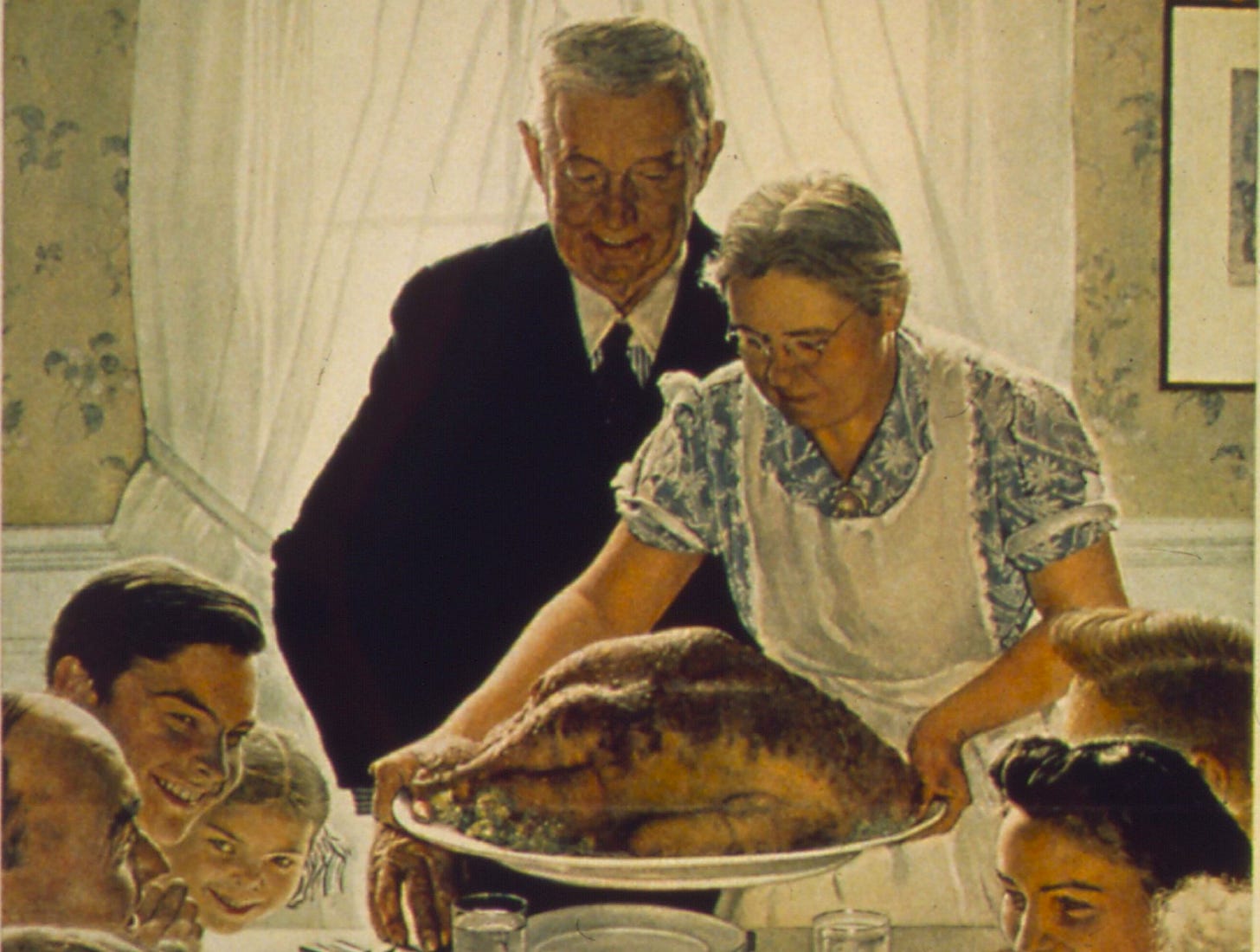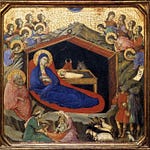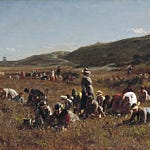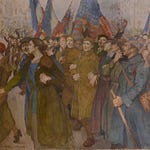A prim and conceited butler is taking his ease in the garden, thinking about the two creatures he loves best in the world, namely, himself, and the young lady he serves. He’s musing about how, if only fortune would smile on him, he’d win her heart. Meanwhile, a passel of merry mischief-makers are hiding behind the shrubbery, overhearing him and waiting for him to fall into their trap. That’s because they’ve forged a love-letter from the lady of the house and set it in his path, to give him false hopes and set him up to be the most ridiculous fool who ever lived. All’s fortune, he says, only fortune. “Besides,” he continues, “she uses me with a more exalted respect than anyone else that’s near her. What should I think on’t?”
"Here’s an overweening rogue,” grumbles Sir Toby, the lady’s scapegrace cousin, at which one of his fellows begs him to be quiet. “Peace! Contemplation makes a rare turkey-cock of him. How he jets under his advanced plumes!” We’re to imagine a male turkey, as stupid as a bag of rocks, strutting and puffing out his chest and ruffing his feathers for the benefit of a turkey hen, to make her swoon with love.
That’s Malvolio in Shakespeare’s play, Twelfth Night — and there’s our Word of the Week, turkey, in a play that was written almost twenty years before the Pilgrim Fathers landed at Plymouth, and before they celebrated a late-autumn Thanksgiving with great roasted turkeys! Is it the same bird? Where did it come from? Why is it called a turkey?
As best we can figure, it was the same bird or close to it, brought into Europe and Asia by Spanish traders. It quickly became a favorite — after all, you’d much prefer a big fat turkey to a skinny goose or stork. But it got to England by a circuitous route: from India, where the Spanish took it, and Madagascar, and thence to the country called Turkey, after the people, the Turks, who ruled there. The Turks themselves called the bird hindi, meaning that it came from India, and that’s also why in French it was called poulet d’Inde, Indian chicken — giving us modern French dindon. In Italy, they call it tacchino, probably imitating a tak-tak-tak gobble. If you think that’s odd, in Persia you may call it either korus e-hendi, Indian chicken, or booghalamoon — again, for the gobble. In any case, if you were living in London in Shakespeare’s time, you might well have the popular turkey as your Christmas feast.
So when the Pilgrims came to Massachusetts, imagine their surprise when they saw wild turkeys galumphing about, fattened on local walnuts and beech nuts and hazels and apples! They’d have known from experience what to do with those birds. We’ve got flocks of them where we live now, in New Hampshire, and one winter’s day they gathered, about two dozen, around a crabapple tree in the neighbor’s yard, craning their necks and hopping from the ground to snatch the fruits, yes, hopping, because they were too heavy for the branches, especially the toms. And here’s a little recipe I’ve found on line, handwritten, in 1684, for a turkey pie:
“You must bone your turkey and season it with pepper salt nutmeg and stick some cloves on the breast and cover him all over with it and when he goes into the oven put into him half a pint of fair water.”
That’s fresh water, not beer or cider. Well, why not try it?
Word & Song is an online magazine devoted to reclaiming the good, the beautiful, and the true. We publish six essays each week, on words, classic hymn, poems, films, and popular songs, as well a weekly podcast, alternately Poetry Aloud or Anthony Esolen Speaks. To support this project, please join us as a free or paid subscriber.











